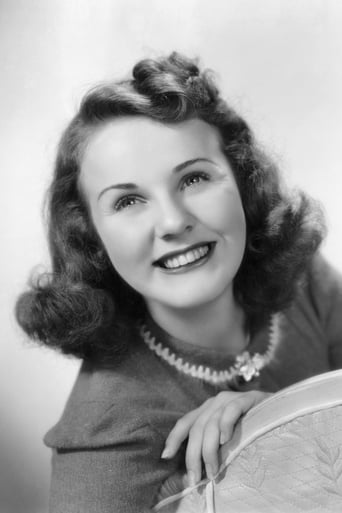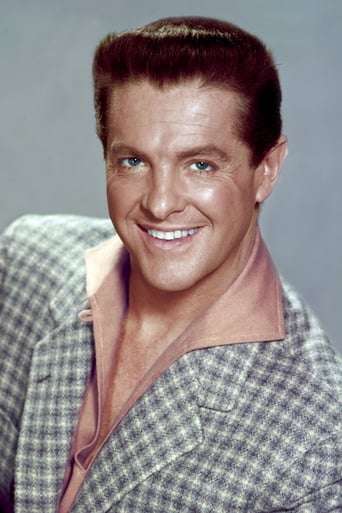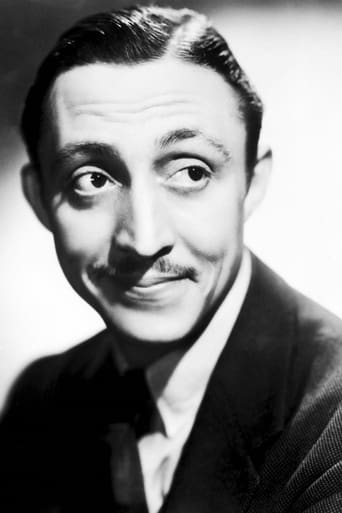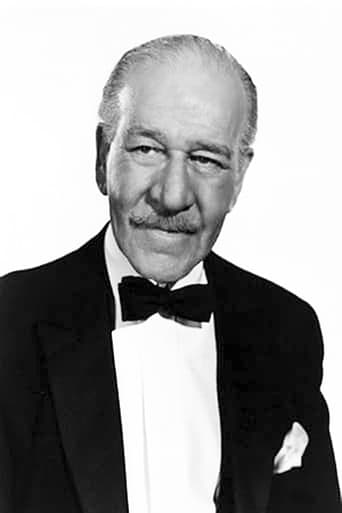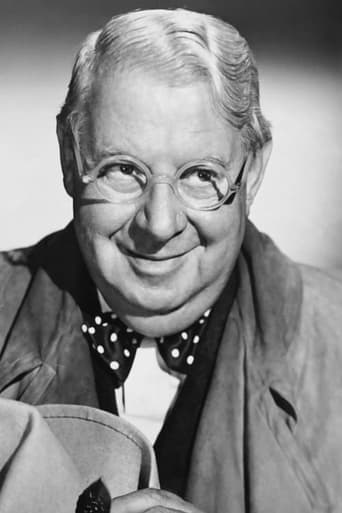richard-1787
This is a disappointing movie, even if you like Deanna Durbin, which I do.Two men are credited with writing the script, and that amazes me. The plot meanders from one embarrassing non-situation to the next. The director, Henry Koster, made some very fine movies, such as Harvey. Why he filmed this script in this shape I don't know.Several previous reviewers have wondered about the title, which makes no sense here. The music, and so perhaps - but I emphasize *perhaps* - the plot come from a musical by Robert Stolz called *Spring Parade*. It has some good music in it. Why Universal took just three songs and then repeated them over and over I don't know.If you've seen *The Great Waltz*, MGM's lavish movie from two years before (1938), the big scenes in this will look pretty weak.
rsstone
Deanna Durbin sang with one of the most beautiful voices ever recorded. This film generously preserves some fine samples of that fact. But perhaps the prospective viewer should know that its story line is much simpler than film stories today where intricate plot twists and violent thrills are expected. Director Henry Koster crafted a sweet comedy about a superstitious, but strong-minded country girl who is fated to meet a self-centered, but talented, corporal who tries to act like a big shot. Henry Koster proves his craftsmanship in his ability to knit together so simple a story and make it interesting and even, in places, arresting. Durbin plays a Hungarian peasant from Szilagy-Somlyo. (It's fun to hear her say it! It happened to be producer Joe Pasternak's childhood home town. Also, how amusing it is to see Durbin, an "All-American Girl," dressed up rather like Eva Braun! Durbin is so beautiful that it does not matter.) The title SPRING PARADE makes no sense to the story line, and that is a clue to understanding the larger, but sad, history of this film. The truth is that the film was first made by Pasternak in 1934, when he produced movies for Universal Studios in Austria and Hungary. Today the first film is identified by either of two names, FRÜHLINGSPARADE or FRÜHJAHRSPARADE, which mean "spring's parade." It tells a probably somewhat fictionalized story of the composition of a famous Austrian military march, the "Deutschmeister Regiments Marsch" by Wilhelm August Jurek in 1893. In the story Jurek is inspired by the rhythmic tapping of his girlfriend in an open-air Viennese restaurant. The climax of the story comes at the end of the film when Emperor Francis Joseph I praises the march while reviewing his troops. Jurek's regiment plays it while passing by. The title SPRING PARADE in that context makes sense. In the Durbin version, the march is replaced by the composition of a waltz. In 1934, Hitler had been chancellor only a year, and a story about a popular march from 1893 was unexceptional. By 1940, however, a movie about a rousing German march would be exceptional. The year 1893 gives the viewer of SPRING PARADE a peg to hang the story on. Now we know that it comes after the assassination of the Empress Elisabeth (Sisi). It adds poignancy to the scenes of the lonely emperor in his royal apartments. In the 1934 film, Joe Pasternak made a big mistake. The screen credits attributed the story to Ernst Marischka, but, in fact, Marischka wrote the screen play from an original story by Ernst Neubach, who was not credited. After World War II, Neubach settled in France. In 1949, he sued Universal Studios for violation of his copyright, and won. Universal Studios lost all rights to, what was for them, a most cherished film. And it disappeared from the public square. No studio-made VHS, DVD, or Blu-Ray disc has ever appeared. One can reasonably wonder about its current status as a property. Has it passed into the public domain? In 1955, FRÜHJAHRSPARADE was remade in color by Ernst Marischka with the title DIE DEUTSCHMEISTER, starring a young Romy Schneider. Wouldn't it be nice if, say, a manufacturer like the Criterion Collection would release a three-film set with FRÜHLINGSPARADE/FRÜHJAHRSPARADE (1934), SPRING PARADE (1940), and DIE DEUTSCHMEISTER (1955), all restored with extras like sections, subtitles, and commentary? Detailed information about SPRING PARADE can be downloaded in PDF format from the academic journal Modern Austrian Literature, Volume 32, Number 3 (or 4), 1999, Special Issue: Austria in Film. The paper is "Spring Parade (1940): Imperial Austria Lives Again (at Universal)," by Jan-Christopher Horak, pp. 74-86. The Packard Campus of the National Audio-Visual Conservation Center of the U. S. National Archives at Culpeper, Virginia, owns a copy of SPRING PARADE, and they have given it at least three public showings. It is probably a clean positive without breaks. The music of SPRING PARADE is significant, with a fine march, two waltzes, and a comic song by Prof. Robert Stolz from 1934. The talented Gus Kahn contributed new lyrics to the music that Durbin sings. Charles Previn of Universal added his own march, which is very fine and needs to be heard today. Finally, Mr. Kahn wrote lyrics to Hans J. Salter's "Blue Danube Dream," which re-works the "Blue Danube Waltz." Durbin's performance of this is magnificent. Just on the music alone this film has cultural significance. It and its sister films should be conserved, restored, and seen again as they were meant to be seen.
SanDiego
One of the few Deanna Durbin films, almost all shot in black-and-white, not available on commercial video as of this writing. That's a shame. Universal needs to finally release this film as well Deanna Durbin's HERS TO HOLD, the final chapter in her THREE SMART GIRLS trilogy. SPRING PARADE is a charming and delightfully dated fairy tale-like film and makes a great companion to classics such as Danny Kaye's HANS CHRISTIAN ANDERSON, Shirley Temple's HEIDI as well as Sonje Henie's series of films.
